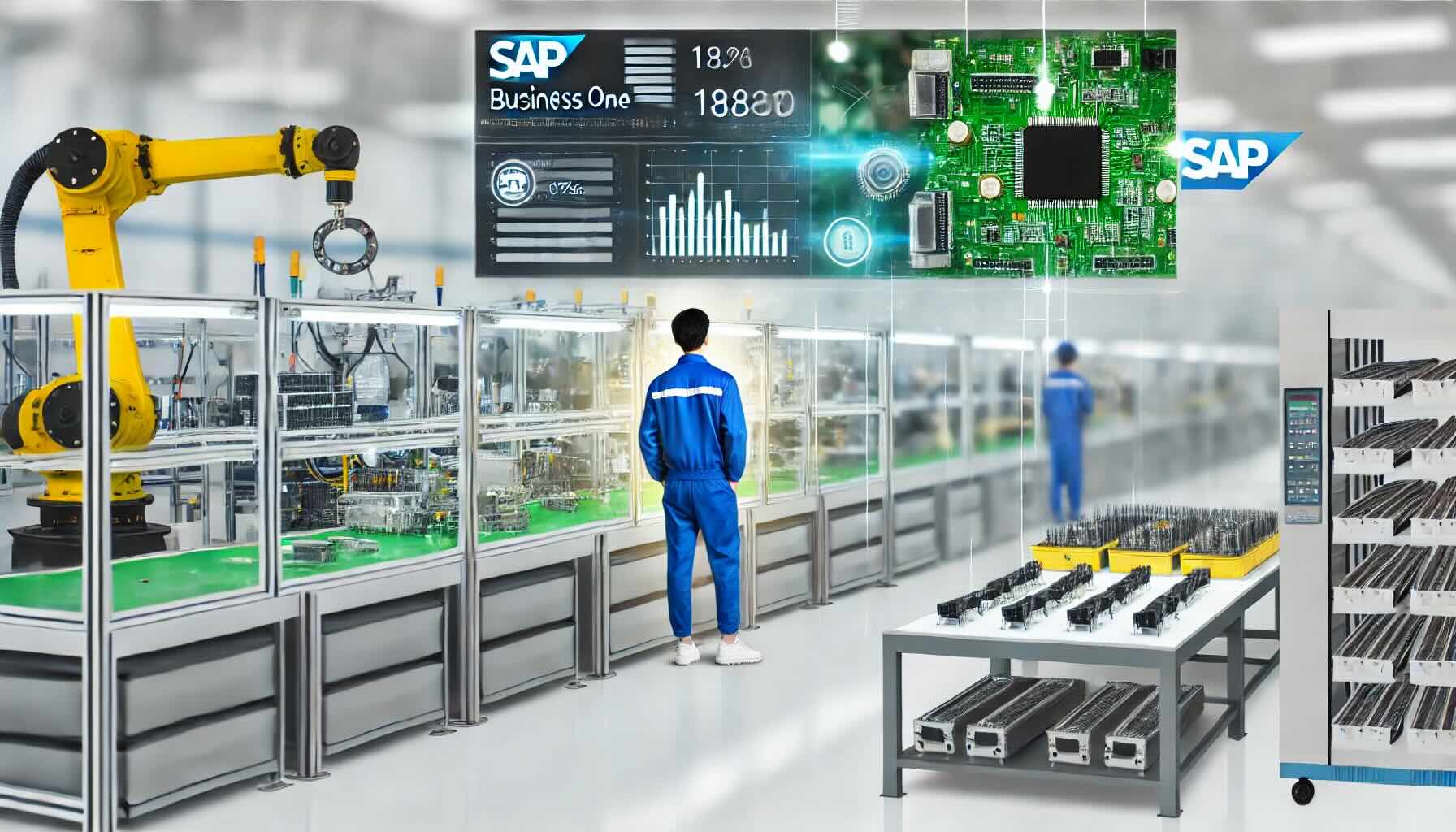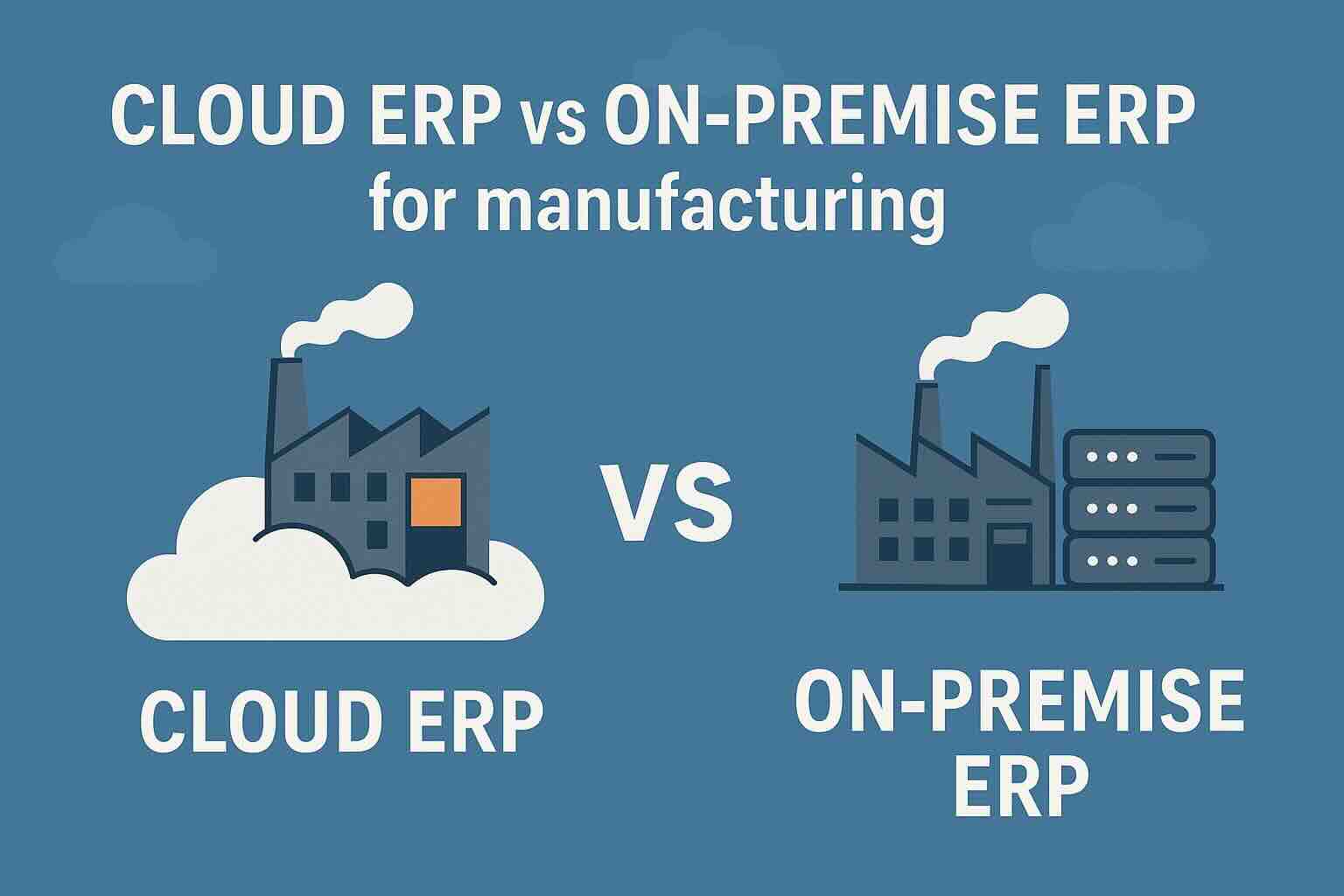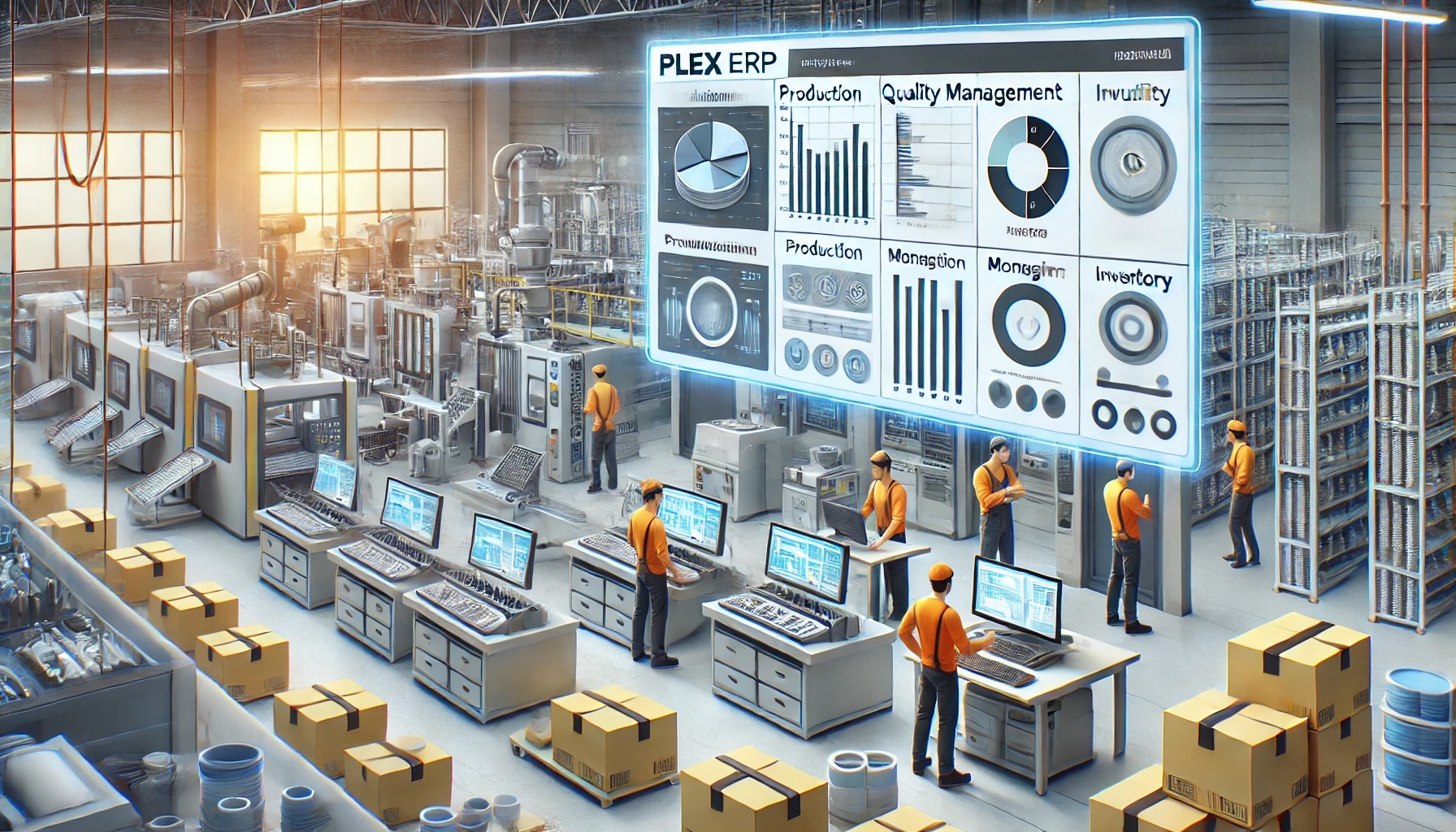Is SAP Business One a Good Choice for the Electronics Industry?

In the fast-paced and competitive electronics industry, staying ahead of market trends, managing complex supply chains, and ensuring compliance with global standards are critical. Businesses in this sector need software solutions that can handle these intricate processes while maintaining flexibility and scalability. One such solution is SAP Business One, an enterprise resource planning (ERP) system specifically designed for small and medium-sized enterprises (SMEs). But is SAP Business One the right fit for companies in the electronics industry? Let’s explore its features, advantages, and potential challenges to understand why it may be a good choice.
Understanding SAP Business One
SAP Business One is an ERP solution that integrates various business functions like finance, inventory management, production, and sales. The software is designed to provide visibility across all operations, streamline processes, and enhance decision-making. SAP Business One is particularly well-suited for SMEs, offering a balance of affordability and robust functionality, making it a popular choice for industries with complex needs, such as electronics.
Key Features of SAP Business One for Electronics
The electronics industry has unique requirements, from managing complex supply chains and multiple production lines to ensuring quality control and compliance with strict regulatory standards. SAP Business One offers a range of features that address these needs effectively:
1. Inventory and Supply Chain Management
Electronics businesses often deal with a wide variety of components, parts, and materials, many of which are sourced globally. SAP Business One provides advanced inventory management tools that allow businesses to track stock levels in real time, automate reorder processes, and optimize warehouse management. The software’s supply chain management module also helps in managing vendor relationships, procurement, and logistics, ensuring that components are sourced efficiently while minimizing costs.
2. Production Planning and Management
In the electronics industry, production processes can be highly complex, involving multiple stages of assembly and testing. SAP Business One offers production planning functionalities that help businesses plan their manufacturing processes, monitor production schedules, and allocate resources effectively. The system supports both discrete and process manufacturing, which is crucial for electronics companies that need to handle different types of production workflows.
3. Regulatory Compliance
The electronics industry is subject to stringent regulations, including environmental standards, safety certifications, and quality management systems. SAP Business One comes with integrated tools that help ensure compliance with various industry standards, such as ISO certifications and RoHS (Restriction of Hazardous Substances). This feature allows businesses to track compliance status, generate necessary reports, and avoid costly penalties due to non-compliance.
4. Real-Time Data and Analytics
One of the major advantages of SAP Business One is its ability to provide real-time insights into business operations. With built-in business intelligence (BI) tools, companies can generate detailed reports on sales performance, production efficiency, and financial health. For electronics businesses, this means the ability to react quickly to changes in demand, address bottlenecks in production, and optimize resource allocation based on real-time data.
5. Customer Relationship Management (CRM)
Electronics companies must maintain strong relationships with both suppliers and customers. SAP Business One offers integrated CRM tools that help businesses manage customer interactions, track sales pipelines, and provide excellent customer service. This is crucial in the electronics industry, where product lifecycle management and after-sales support are essential for maintaining customer loyalty.
Benefits of SAP Business One for Electronics Companies
Now that we’ve discussed some of the key features of SAP Business One, let’s explore the benefits that make it a strong contender for electronics businesses:
1. Scalability
As electronics companies grow, so do their operational needs. SAP Business One is a scalable solution that can expand alongside the business, accommodating more users, higher volumes of transactions, and additional modules as needed. This makes it ideal for growing SMEs that anticipate scaling their operations in the future.
2. Cost-Effectiveness
Compared to more complex ERP solutions, SAP Business One offers a cost-effective platform for smaller businesses in the electronics industry. It provides essential ERP functionalities without the high price tag of enterprise-level systems, allowing companies to reap the benefits of automation and integration without straining their budgets.
3. Integration Capabilities
One of the key strengths of SAP Business One is its ability to integrate seamlessly with other systems. For electronics companies, this is particularly important when connecting to product lifecycle management (PLM) systems, computer-aided design (CAD) tools, and e-commerce platforms. The ability to integrate with third-party applications ensures that all aspects of the business are connected, improving data accuracy and operational efficiency.
4. Global Reach
Electronics businesses often operate on a global scale, requiring multi-currency, multi-language, and multi-location support. SAP Business One provides all of these capabilities, allowing businesses to manage international operations efficiently. This is crucial for companies with suppliers and customers spread across different regions.
Challenges and Considerations
While SAP Business One offers numerous benefits, there are a few challenges electronics businesses should consider:
1. Customization Needs
Electronics companies may have very specific processes that require custom configurations or add-ons. While SAP Business One offers flexibility, some companies may find that they need to invest in additional customizations or third-party solutions to meet their unique requirements.
2. Implementation Complexity
Like any ERP solution, implementing SAP Business One can be complex and time-consuming. Electronics companies must be prepared for the initial investment in time and resources to ensure a smooth implementation. Choosing a skilled implementation partner is essential to minimize disruption during the transition.
3. Training and Change Management
Adopting SAP Business One requires employees to learn new processes and software. Electronics businesses should invest in comprehensive training and change management programs to ensure that employees are comfortable using the new system.
Conclusion: Is SAP Business One Right for the Electronics Industry?
SAP Business One provides a comprehensive, flexible, and scalable ERP solution that can meet the diverse needs of the electronics industry. From supply chain management to regulatory compliance and production planning, the software offers tools that help electronics businesses streamline their operations, improve efficiency, and maintain competitiveness in a fast-moving market.
While there are some challenges, such as customization needs and implementation complexity, the benefits of SAP Business One—such as real-time data, scalability, and cost-effectiveness—make it a strong option for small and medium-sized electronics companies looking to enhance their business processes and drive growth.
In conclusion, SAP Business One for Electronics is not only a good choice but a smart one for businesses aiming to scale, innovate, and stay ahead in the electronics industry. Click this link to find out more about SAP Business One.
To compare SAP Business One with 100s of other ERP solutions, you can use our new AI-powered Compare ERP tool. It’s free to use and you get a guaranteed discount on your first year’s licence fees with a referral from Compare ERP.









